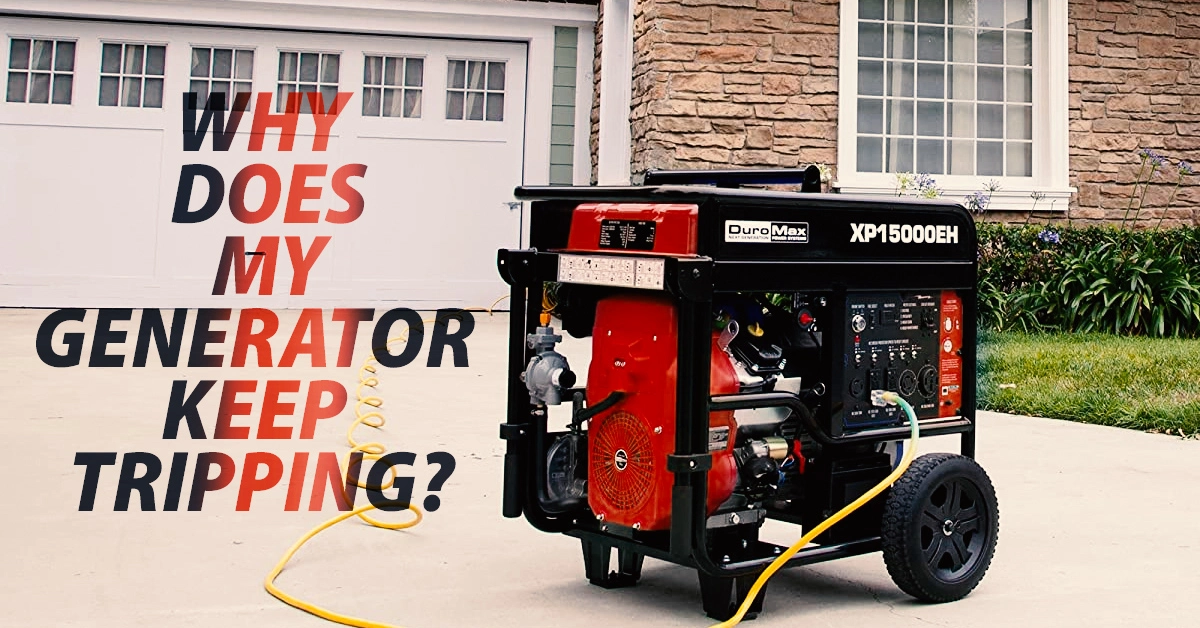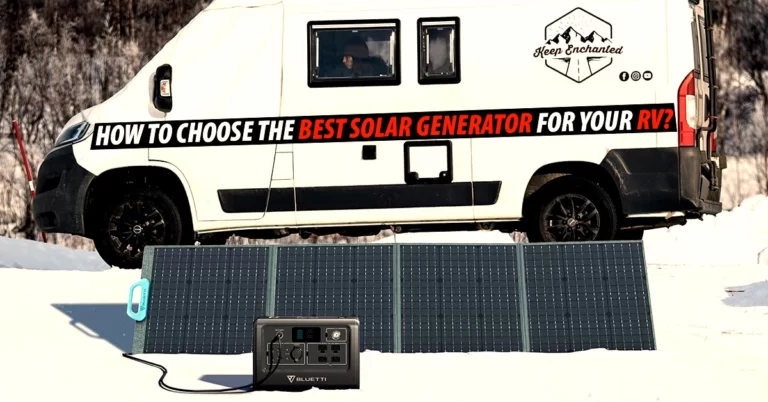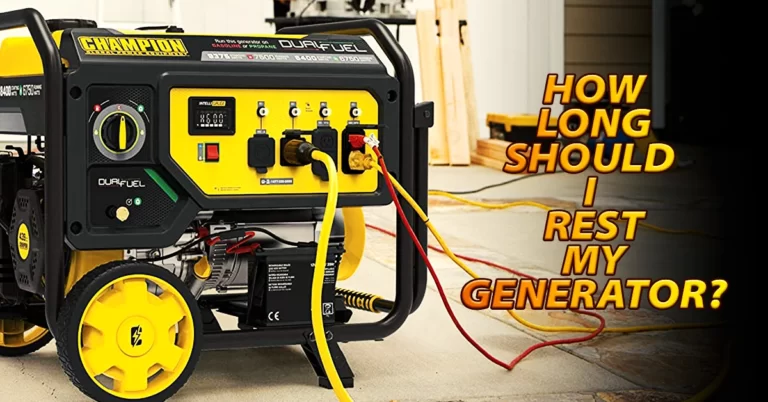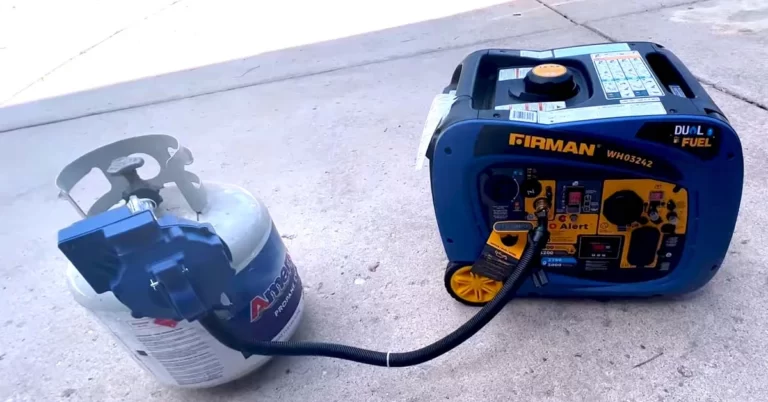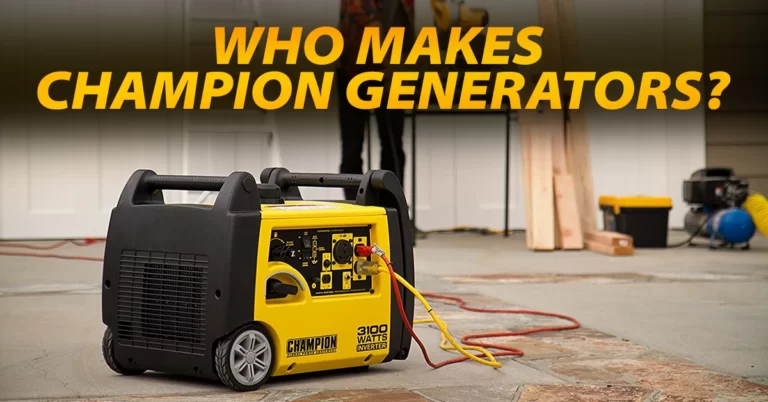Why Does My Generator Keep Tripping?
Generators are a valuable tool to have, particularly during power outages or when you’re outdoors camping or sailing. However, it can be frustrating when your generator’s circuit breaker keeps tripping, leaving you without power. In many cases, the cause of the tripping is an overload or a power leak/ground fault. It is imperative to understand the reasons behind these issues and how to resolve them. This article will delve into the common causes of generator circuit breaker tripping, including faulty breakers and loose connections, and provide practical steps to troubleshoot and fix them. So if you’re wondering, “Why does my generator circuit breaker keep tripping?” read on to find out.
What Causes Generator Tripping?
Overload
One of the major causes of a generator circuit breaker tripping repeatedly is overload. Every generator has a maximal load capacity, and going over that limit can cause the circuit breaker for that generator to trip. To prevent overloading your generator, it is essential to understand load capability.
Reducing The Load To Avoid Tripping
By unplugging some electronics or appliances, you can lessen the burden on your generator and prevent overload trips. Turn off any additional devices you added to the circuit to reduce the load. You should be aware of load capacities and carefully monitor them if you frequently use your generator outside.
Importance Of Monitoring Load Capacity
Monitoring the load capability is crucial to prevent overusing and endangering the generator. Overloading occasionally can harm the engine beyond repair. Studying the generator’s manual and comprehending its load capacity before using it is crucial.
GFCI Breakers
GFCI (Ground Fault Circuit Interrupter) breakers protect people from electrical shocks, which sense ground faults and trip the circuit to turn off the power. They keep track of the electrical current moving through the circuit and contrast it with the current traveling back toward the source. If there is a difference, it indicates that some of the circuit’s electricity is leaking out and moving through something else, like a person’s body. When it’s raining, this can be dangerous.
Power Leaks And Ground Faults
GFCI breakers typically activate due to power leaks and ground faults. This is known as a power leak when energy enters a machine or appliance, even when it is off. A malfunctioning gadget or faulty wiring may cause this. Electricity flowing from the circuit to the earth results in a ground fault. A flawed cabling system, an improperly grounded device, or someone touching an electrically charged surface can cause this.
Moisture and Its Impact On GFCI Breakers
GFCI devices can be significantly impacted by moisture as well. Even without a ground fault or power leak, moisture in or around the breaker can cause the circuit to trigger. Therefore, the circuit breaker will not trip, and an error will not be detected. Water can make a path for electricity to flow through that is less resistant. For GFCI breakers to avoid accidentally tripping, they must be kept dry and clear of moisture.
Faulty Breakers

A faulty breaker is a possible culprit when dealing with a generator circuit breaker that keeps tripping. Signs of a bad breaker include:
- The breaker trips without a load.
- The breaker is short-circuiting.
- There are signs of damage to the breaker, such as blackened spots or a smoky smell.
Importance of replacing a faulty breaker
Replacing your generator’s circuit breaker when you detect a problem is critical. In addition to making your generator fail, a broken breaker risks your safety. You can only use your generator with a circuit breaker.
Replacing a circuit breaker with the proper tools and a little knowledge is a reasonably simple task. It’s always ideal to seek the assistance of a certified electrician if you feel uncomfortable doing it yourself.
Faulty Wires and Loose Connections
The circuit breaker for the generator can also trip due to faulty cables and loose connections. It can still happen, even though it is less frequent than other problems. The breaker can detect a problem with the wiring and trip to stop further harm or danger. The same problem can also be brought on by loose connections, which can prevent the passage of electricity and make the breaker trip unnecessarily.
You can look at the screws holding the wires in position to check for loose connections. The problem is frequently resolved by slightly tightening them. Handling the cables carefully and ensuring they are securely fastened is crucial to avoid any possible risks. It is best to consult a qualified electrician to help identify and resolve the issue if you anticipate faulty wiring. Failure to do so may result in additional damage and endanger you or those near the generator.
Short Circuit
When a wire’s insulation in the generator’s electrical system wears away and the exposed wire comes into contact with other wires or metal parts, a short circuit may result. Bypassing the intended course establishes a direct route for the electricity to flow, which can result in a surge of electricity that trips the generator.
Using a multimeter, you can examine the resistance of the wires in the electrical system to find a short circuit. A short circuit is probably present if there is no resistance. You might have to swap out the electrical system’s harmed parts or wires to resolve a short circuit.
Low Oil Pressure
Oil is necessary for generators to lubricate the internal parts and avoid overheating. The generator may trip due to low oil pressure as a safeguard against harm to the motor.
It’s crucial to routinely check and maintain the oil levels in the generator to avoid low oil pressure. Before every use, you should verify the oil level and change the oil per the manufacturer’s recommendations.
Overheating
Overheating may happen when the generator is used in a place with poor ventilation or an issue with the cooling system. It could result in harm and the generator tripping if the internal parts get too hot.
It is crucial to give the generator the appropriate ventilation by situating it in a well-ventilated area to prevent overheating. Additionally, it’s critical to routinely check the cooling system and remove any obstructions to the airflow.
Fuel Issues
When the generator doesn’t get enough fuel or the fuel is tainted, problems with the power can happen. The generator might fail or operate inefficiently as a result of this.
You can check for clogs in the fuel filter or change the fuel if it is contaminated to solve fuel-related problems. Additionally, it’s crucial to check that the fuel lines are not kinked or damaged and that the fuel tank is correctly vented. Maintenance of the fuel system regularly can stop problems with the gasoline from tripping the generator.
Quick Ways to Fix It
Finding The Fault
A generator circuit breaker problem can be solved by finding the source of the issue. Inspect the generator’s parts for overloads, power leaks, defective breakers, and loose links.
Checking The GFCI Receptacle
Check the GFCI outlet to see if a ground malfunction caused the tripping. See if resetting it fixes the issue. If it keeps tripping, the circuit might have a power loss.
Checking The Cords
Look for indications of deterioration in the generator’s cords, such as frayed wires or cracked insulation. Any damaged wires should be replaced because they could be to blame for the trip.
Checking The Capacitor
The battery handles the generator’s start-up. If it is broken, the circuit breaker might fail. If required, examine the capacitor and replace it.
Checking The Fuel
The circuit breaker may occasionally trip due to issues with the gasoline, such as contamination or old fuel. If required, check the fuel and replace it.
Reducing The Load
If an overload is to blame for the tripping, use a smaller generator or unplug some appliances to lessen the burden on the generator.
Tightening Connections
Verify the tightness of all connections, including cables and screws. Loose links can set off the circuit breaker. For a solution, tighten any open links.
Seeking Professional Help
Contact a qualified electrician or generator expert if you need help resolving the issue. They’ll be able to identify the problem and fix it for you.
How to Know Which Circuit Has Tripped
It can be challenging to identify which circuit is at fault when a circuit breaks. Finding the circuit that tripped to correct the issue and prevent it from occurring again is crucial. The procedures to take to determine which course has been faulty are as follows:
- Check the GFCI breaker: On the GFCI breaker, look for a reset button that has come out. The circuit may have been tripped as a result of this.
- Check the circuit breaker: Look for a tripped circuit switch in the house’s fuse box or electrical panel. Typically, a broken breaker is in the “off” position.
- If the home has a fuse box rather than a circuit breaker switch, check for blown fuses. Look for a dark or metallic blue on the tube containing the explosive.
- Check the electrical panel switches: If off, it could indicate a tripped circuit.
Once you have identified the tripped circuit, reset it by turning off all the connected appliances and flipping the circuit breaker back on. If the circuit trips again immediately, there could be a more severe problem, and you should seek professional assistance. Remember, tripping circuits are a safety feature that protects your appliances from damage, so it is essential to address the underlying issue promptly.
FAQs
-
Why does my generator keep tripping?
Numerous factors, such as overloads, short circuits, ground faults, and faulty cabling, can cause generators to trip. Short circuits happen when two wires with opposite polarities contact, creating an electrical imbalance, while overloads happen when the generator is given more power than it can handle. Faulty wiring can occur due to wear and tear, while ground faults happen when electricity seeps through the insulation of the generator.
-
How can I prevent my generator from tripping?
You can stop your generator from tripping by being careful not to overload it, keeping it in good condition, and routinely inspecting its cabling. Additionally, when connecting items to the generator, use the proper extension cords and outlet adapters.
-
How can I determine which circuit is tripping my generator?
Examine the GFCI receptacles and the circuit breaker to find out which circuit is causing your generator to trip. On the GFCI outlets, check for a reset button that has popped out, and on the circuit breaker, look for any broken fuses. If everything appears in order, check the outlets to see if they trip with a tiny electrical load, such as a portable radio. If so, there may be a leak or other issue with the exit.
-
Can a generator trip if it’s not overloaded?
Even if a generator is manageable, it may trip. Even when the power consumption is within capacity, a ground fault or short circuit could cause the generator to shut off.
-
What should I do if my generator keeps tripping?
Try to determine the root of the problem by using the methods above if your generator continues tripping. It is best to seek expert assistance from an electrician or generator repair technician if you cannot identify the cause. Using a defective generator longer than necessary can be risky and harm your appliances.
-
How often should I perform maintenance on my generator to prevent it from tripping?
A minimum of once a year, or after 100 hours of use, is advised for generator upkeep. This entails inspecting the spark plug, verifying the oil level, and cleaning the air filter. Regular maintenance can help avoid problems that could trip your generator.
-
Can the weather affect my generator and cause it to trip?
Yes, extreme weather conditions can influence your generator and trip it, such as high temperatures or heavy rain. To avoid this, ensure your generator is adequately shielded from the elements and ventilated.
-
Can overloading my generator cause it to trip?
Overloading your generator can indeed make it crash. Every generator has a maximum power production; if you go over it, the circuit breaker on the generator trips. Ensure to operate only a few appliances or devices simultaneously to avoid overloading.
-
Can faulty wiring in my home cause my generator to trip?
The answer is yes, faulty wiring in your house can trip your generator. Your home’s electrical wiring may trip your generator’s circuit breaker if damaged or improperly fitted. You should call an electrician if the wiring requires repairs.
-
Can a malfunctioning GFCI outlet cause my generator to trip?
Indeed, your generator may trip due to a damaged GFCI (Ground Fault Circuit Interrupter) outlet. A GFCI outlet is made to recognize electrical leakage and limit power to stop electrocution from occurring. Your generator may trip if the GFCI outlet is broken or malfunctioning. To fix the problem, you might have to replace the GFCI receptacle.
Conculsion
A generator trip is a safety measure to guard your equipment against harm from overloads or power faults. Your generator must receive routine maintenance to guarantee proper operation and prevent frequent tripping when your generator trips, the first thing to do is to determine which circuit—a circuit breaker or a GFCI—has broken. To find the source of the issue, you can then test the GFCI outlets and look for electrical leaks in the cables. It is advised to obtain professional help if the problem continues. Keep in mind to always follow safety protocols when using generators and electricity.

